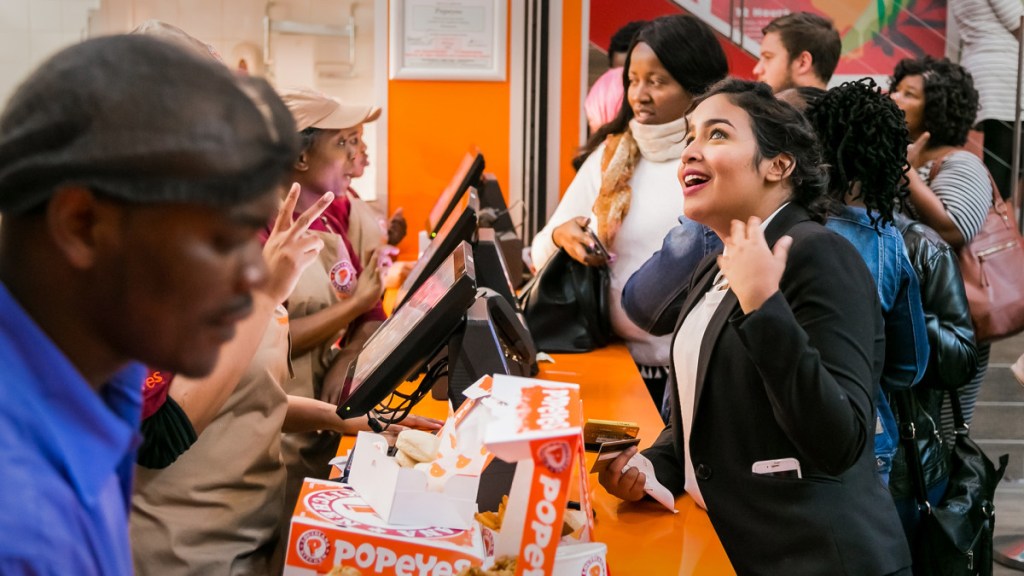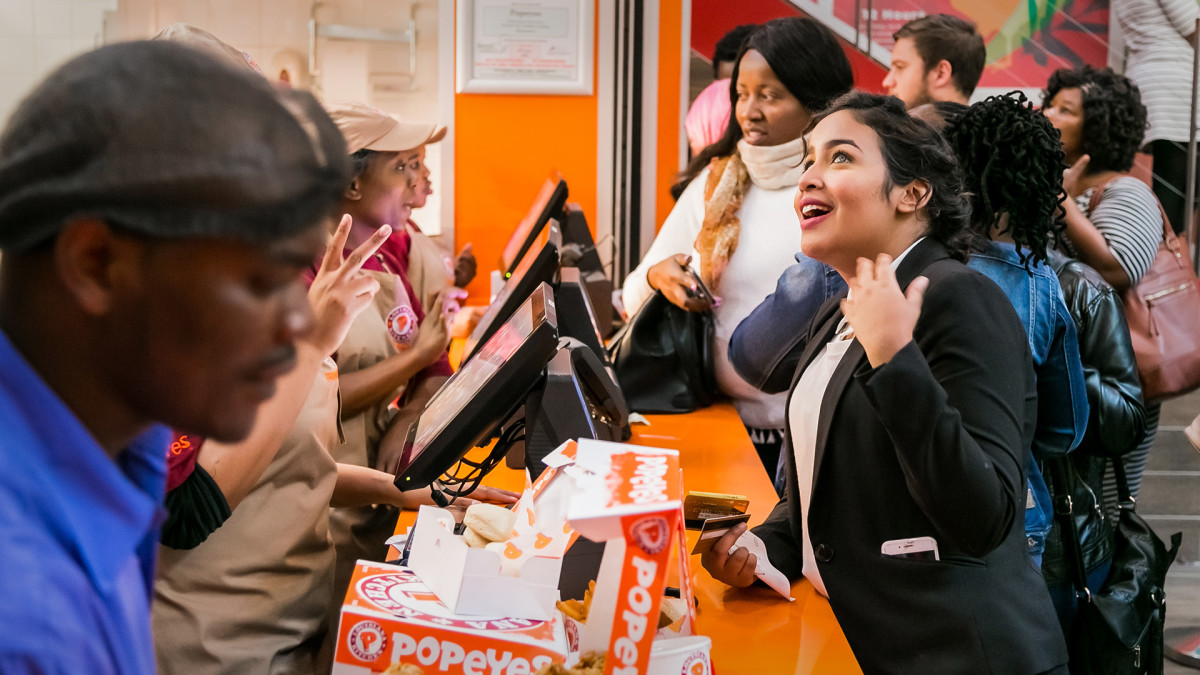Another struggling fast-food operator files Chapter 11 bankruptcy
Published 12:24 pm Wednesday, February 7, 2024

- Popeye's has had some success with its signature chicken sandwich.
Fast-food chains used to be a license to print money. In the 80s and 90s, before fast-casual existed and when delivery was limited to pizza places (and not all of them), having cheap food and a drive-thru window made you a convenient option compared to cooking at home.
In the current marketplace, however, competition has increased. On one hand, you have brands like Chipotle (CMG) that position themselves as a healthier option to the traditional burger and fried food chains. It doesn’t matter that many of the fast-casual chain’s options can hardly be considered good for you, but Chipotle does use fresher ingredients.
Related: Another popular beer brand files Chapter 11 bankruptcy
Traditional fast food brands also face increased competition from every other type of restaurant. Ordering Chinese food, for example, used to require going to a restaurant and picking it up. You can now, of course, take your pick of Chinese, Japanese, Thai, Vietnamese, or any other cuisine via multiple delivery services.
On top of all that, traditional fast-food chains also face the McDonald’s problem. That chain was ahead of the curve when it came to investing in digital (and forcing its franchisees to buy in) so McDonald’s operators did not take a big hit, and in some cases did better, during the Covid pandemic.
Rival chains including Restaurant Brands International’s (QSR) Burger King and Popeye’s have struggled to keep up. Now, after Burger King saw multiple franchise owners file for Chapter 11 bankruptcy protection, another RBI brand operator has followed that path and filed for Chapter 11 bankruptcy protection.

Image source: Shutterstock
Popeye’s franchisee files for Chapter 11 bankruptcy
Popeye’s likely suffered worse than Burger King during the covid pandemic because some of its locations lacked drive-through lanes. That meant that customers who wanted to pick up their orders had to enter the restaurant at a time when people were uncomfortable doing that.
RRG, Inc., which operates 17 Popeye’s locations based in Georgia, has filed for Chapter 11 bankruptcy protection with the United States Bankruptcy Court for the Southern District of Georgia. The owners, Mark Rinna and Jane Rinna, said that the filing is because a few locations are dragging the rest down.
“Debtor is filing bankruptcy as a result of failing locations. Debtor has approximately three Popeye’s restaurants that have significantly lost money and caused a financial burden on the continued operation of the remaining restaurants. Debtor has fallen behind on lease payments of remaining profitable restaurants and needs to cure those arrearages to avoid lease termination,” the company shared in its bankruptcy filing.
The owners plan to continue operating while in Chapter 11.
This is the second Popeye’s franchisee to file bankruptcy over the past 12 months as Premier Cajun Kings filed for Chapter 11 bankruptcy in March 2023 after its owner died.
The three-page RRG court filing does not contain any details about the size of its debt or the cost of its leases.
Burger King parent has seen multiple franchisees go bankrupt
Since the end of the Covid pandemic, RBI has seen three large Burger King franchisees file for Chapter 11 bankruptcy. That included Premier Kings, a 172-location operator owned by the same deceased operator as Premier Cajun Kings.
Two other significant franchise operators, Meridian Restaurants and Toms King, filed for Chapter 11 bankruptcy protection and were ultimately sold at auction. In both cases, numerous restaurants ended up closing down.
RBI CEO Josh Kobza, however, highlighted the positives for both Burger King and Popeye’s during his company’s third-quarter earnings call.
“While we still have plenty of work to do, we were very pleased to see progress in our Burger King and Popeyes U.S. businesses with traffic improving to flat year-over-year,” he said.
The CEO also called out strong results for the company’s franchisees.
“On franchisee profitability, strong top-line results, moderating costs, and improved labor productivity helped deliver another quarter of double-digit year-over-year growth in average restaurant-level EBITDA for each of our home markets,” he added.
Kobza also acknowledged that select operators were having problems and shared that the parent company has gotten involved.
“As you know, we have been working closely with franchisees to transition restaurant portfolios into the hands of strong local operators. Over the past few quarters, we have prioritized the most distressed situations, closing unviable restaurants and cleaning up a number of portfolios,” he said.
Related: Veteran fund manager picks favorite stocks for 2024









